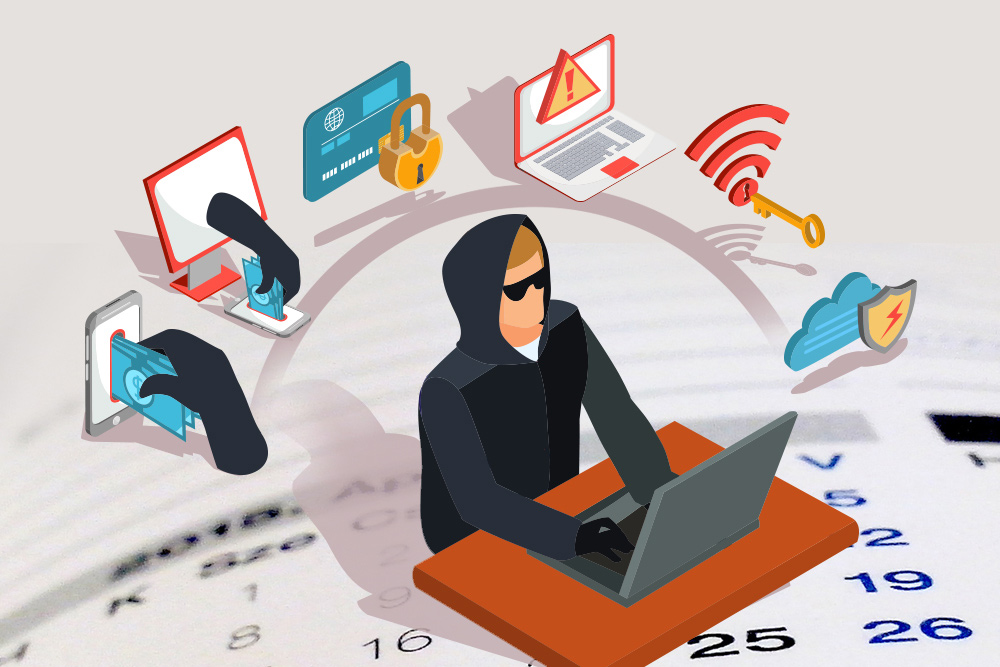
A Look Back On Cyber Crimes That Swept 2017
We’ve reached the “Ber” months and, in the Philippines, that pretty much signals the Christmas season and the end of the year. And when the end of the year is nearing, we just love to reminisce the year that was. But here’s a different twist of that on cyberspace. We will recap the hacking trends that happened this 2017. No, you’re not allowed to be nostalgic about this unless you’re a self-confessed hacker, then we will give a free pass—to the proper authority. Okay then, here are a few hacking trends that got the world’s attention and scared us out of our wits. A physical attack is alarming. A cyber-attack is alarming just the same. warned that hackers usually go after unprotected systems, so it’s best to always adopt the latest in technology and security updates.
Ransomware
This is the most popular known attack this year. Hackers send an email with a link that has dangerous malware. Once you click on it, your computer and the entire network that the computer is connected to become infected, which means all files and data are held hostage and cannot be retrieved unless you pay them to unlock the system. You’ll be directed to a field where you’ll have to put in your credit card details.
Tip: Always backup important files immediately. In the event it’s held for ransom, you already have a secured location where your data are stored so you can recover it from there, and don’t have to give in to the hackers’ demands.
Internet of Things Apocalypse
It’s projected to be in full operation by 2020 and yet here we are already dealing infected with IoT devices as the value for real-time data increases. It’s a malware called Mirai. It doesn’t infect computers and smartphones, but smart lights, DVRs, security cameras, appliances, and the likes that do not have an operating system for passwords and antivirus. Once infected with Mirai, computers go on to search the internet for unsecured IoT devices and then use known default usernames and passwords to log in to infect them. Pretty much how zombies spread infection, right?
Tip: Immediately change the default username and password when installing a device on the internet, and passwords should be unique for every device once connected to the internet. While at it, also put up the latest software updates because prevention is better than cure. You get the drill.
Phishing Scams
There’s something fishy about that email from a travel agency that’s rife with grammatical errors. Misspelled words and the email address sounds dodgy. But the offer is so good that you click on it, and there you have it, these hackers have now installed malware on your computer. They get creative too with their offers and schemes that, more often than not, people give out their credit card details to purchase the “discounted” offer.
Tip: Be mindful of the email content. If it’s poorly worded and the offer is too good to be true, then that’s a red signal right there. Always counter-check. Call the agency or company as sometimes these phishing scams make use of names similar to that of large reputable corporations. You can also make use of for a team of experts to look after your interests.
Mobile Payments
What happens if your wallet is stolen by a pickpocket? It’s a loss of money, and it’s no different in giving out payment to purchase goods online. Credit card numbers are stored in digital wallet programs such as Android Pay or Apple Pay and PayPal. Chances are, hackers get to steal the credit card details, or in the case of Google Wallet before, a person will only have a phone that isn’t protected by a screen lock to go to the applications set, clear the Google Wallet app data to reset it and for it to request a new PIN. Some hackers would intercept payment tokens—codes that are tantamount to credit card information—sent from the mobile to the payment terminal during the wireless payment.
Tip: Avoid using mobile payment options as much as possible. Make use of a VPN to add another layer of protection from hackers. Also, review the monthly statements provided by your bank and credit card companies for anything suspicious.
Into the Spotlight
You guessed it right, James Bond. Hackers are targeting production companies too. Early this year, a hacker released the new season 5 of Orange Is the New Black when Netflix failed to meet the hacker’s ransom demands. Hackers also threatened Disney to release early its upcoming Pirates of the Caribbean film. While some see this as means of monetary gains, others view it as seeking attention and bragging rights.
Recent Posts
- How Does GPON Improve Network Efficiency?
- What Are The Advantages Of GPON?
- What Are The Benefits Of IT Outsourcing?
- What's The Deal With Ransomware Attacks?
- Are GPON Providers Widely Available?
- What's GPON's Impact On Bandwidth?
- Why Is Multi-Factor Authentication Important?
- How To Ensure Data Privacy Compliance?
 Blogs
Blogs Infographics
Infographics Videos
Videos Podcasts
Podcasts Case Studies
Case Studies Call For Quote
Call For Quote